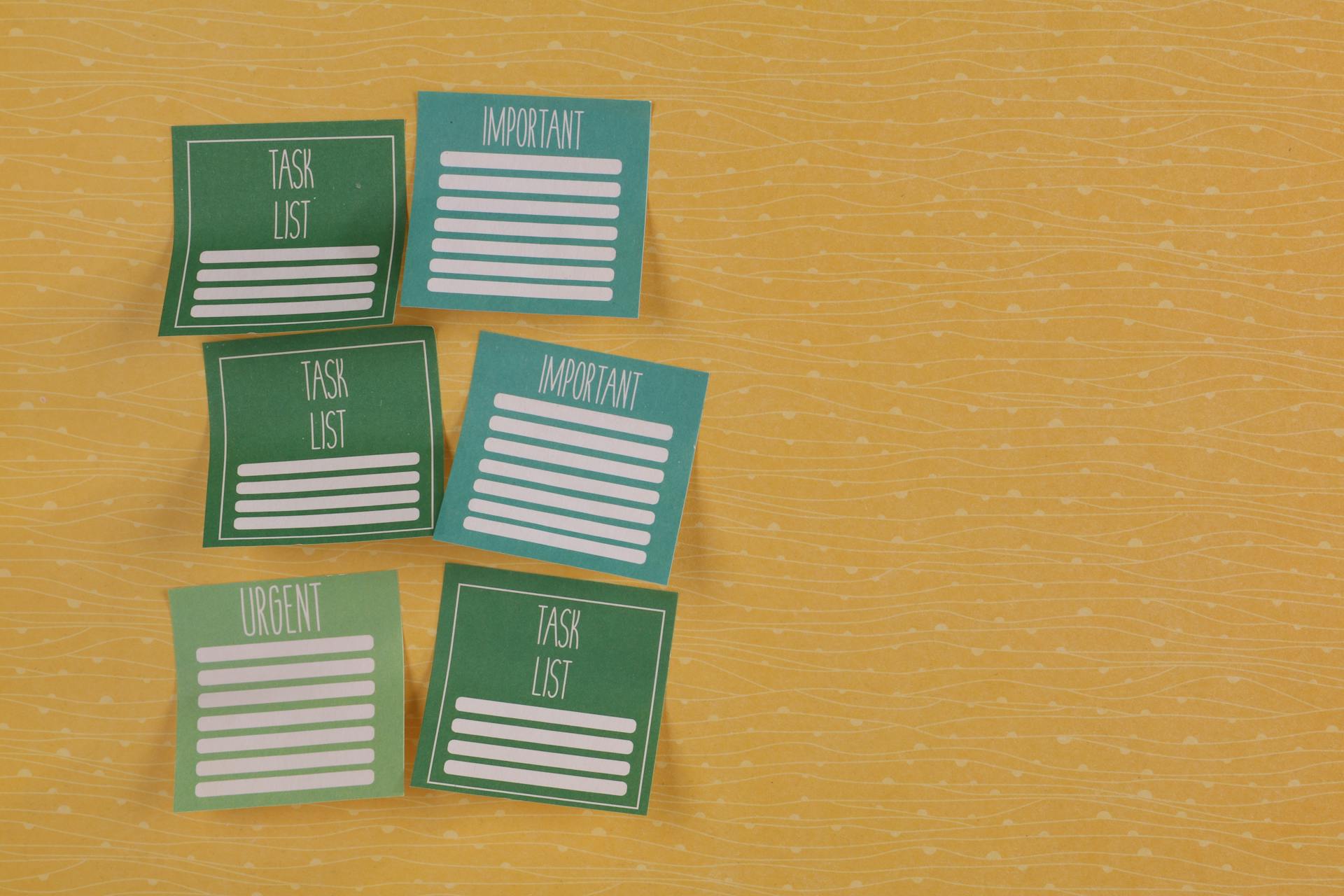

It’s amazing how summer makes even the most introverted souls feel like social butterflies. After all, your calendar can quickly fill up with barbecues, beach days, and rooftop happy hours with longer days and warmer nights. The catch? While your social life thrives, your personal goals and productivity stall.
With the Social Butterfly Schedule, you can enjoy summer with a practical approach that won’t let your priorities wane. What’s the key? Smart time-blocking, intentional socializing, and saying “no” guiltlessly.
So, let’s dive into how to enjoy every pool party and patio brunch without losing sight of your priorities.
1. Acknowledge the Summer Shift
In the summer, there’s a different rhythm. It may seem like work hours are looser, impromptu invites appear, and the vibe is undeniably more relaxed. As such, getting swept up in the moment is easy. But that doesn’t mean you should give up on your goals.
If you’re writing a book, saving for a big trip, building a business, or committing to a personal project, give them their due.
Begin by acknowledging and accepting the seasonal shift. Rather than fighting it and feeling guilty and unproductive, work with it. How? Accept that your schedule will naturally include more social invitations, but instead of responding to them, plan your weeks for play and purpose. As a result of this acceptance, you are liberated from internal conflict and can make proactive decisions.
2. Define What Summer Success Looks Like to You
Before saying “yes” to every ping on your phone, ask yourself: What do I truly want from this summer? Besides being busy, what would make it feel personally successful and fulfilling?
It could be as simple as;
- Enjoying dedicated, quality time with your children or grandchildren.
- Finishing the first draft of a novel or personal writing project.
- Launching a new product/service in your business or a creative side project.
- Exploring new natural spaces or nearby towns on weekends.
- Maintaining a consistent fitness routine, such as regularly going to the gym or walking every day.
Whatever you choose, write down your top two or three summer priorities. Having this clarity allows you to make wise choices that match your values, energy level, and long-term vision, not just those of your social circle. Without defining what success looks like, you won’t know if you’re achieving it.
3. Time-Block for Fun First — Yes, Really
While scheduling your social time first may seem counterintuitive when you’re trying to protect your productivity, it’s one of the best moves you can make. The reason it works is that it prevents guilt, resentment, and “shoulds” from creeping in later.
It’s easier to organize your work, goal-focused time, and other responsibilities around Friday night cookouts, Saturday beach trips, or Sunday brunches when they’re scheduled in advance. Rather than feeling like interruptions, social events become rewards for the hard work you put in earlier in the week. Joy is being consciously carved out of your life.
This might work for you:
- Every week, designate 1–2 evenings as “social nights” or open slots for spontaneous plans.
- Saturday afternoons should be reserved for flexible or spontaneous social plans.
- After significant events, schedule quiet time to recharge.
By building your downtime on a foundation of structure and intention, you’ll enjoy it more fully, rather than feeling like you’re stealing it.
4. Use Theme Days or Time Zones
Structure doesn’t necessarily mean rigidity. While remaining nimble, you can still be highly intentional with your time. One highly effective method is to assign specific “zones” to your time or theme for each day. As a result, your brain keeps track of what it should be focusing on during specific periods, while still keeping room for spontaneity.
Some examples are;
- Mornings = Deep Work. Use your peak energy hours for cognitively demanding tasks (writing, strategic thinking, problem-solving).
- Afternoons = Admin / Light Tasks. Send emails, handle calls, run errands, and perform other less mentally demanding tasks when your energy slumps.
- Evenings = Social / Relaxation. This is the time when you can connect with others or unwind.
- Fridays = Flex / Overflow. Take advantage of this day to catch up, do creative work, or handle unexpected tasks.
- Sundays = Planning + Rest. The perfect day to reflect, plan your week, and take a true break.
By using this approach, we prevent context switching, which can be a significant time-sink. As a result, your brain is more efficient and focused during each zone.
5. Learn the Art of the Graceful “No”
A social butterfly’s ability to maintain their goals is arguably the most crucial — and also the most challenging. Whether you’re a supportive sibling, a committed partner, or a good friend, you don’t have to attend every event. It’s actually good to be selective with your time, as it demonstrates respect for yourself, as you’re only committing when you’re able to deliver.
The key? Saying “no” with kindness and confidence, without over-explaining.
Here are some tips for crafting a gracious “no.”
- The honest no (without over-explanation). “Thank you so much for inviting me! My schedule that weekend is filled with personal projects/recharge, so please keep me notified about the next one.”
- The redirection. “I really appreciate you thinking of me, but I can’t make it to the group dinner on Friday. Can we grab coffee next week, just the two of us, if you’re free? ”
- The soft buffer. “That sounds like a lot of fun!” I’m checking in with a few other commitments now. Can I let you know by Thursday? ”
It’s essential to be clear, prompt, and brief. If you apologize excessively or make up elaborate excuses, you will only weaken your resolve and are more likely to be seen through. If you say “no” to one thing, it means you are prioritizing being healthy and reaching your goals.
6. Prioritize “Quality Over Quantity” in Your Social Life
When it comes to social engagements, more doesn’t always mean better. Having a packed calendar filled with lukewarm interactions can be draining. So, take the time to focus on the people and gatherings that truly fill you up, not just those that clog your calendar.
Ask yourself;
- Who do I really want to spend time with this summer? Consider those who uplift, inspire, or simply bring you peace and joy.
- What kinds of social experiences make me feel most alive and connected? Do they involve deep conversations, active outings, or shared creative pursuits?
- Which social obligations feel like pressure or duty, not genuine pleasure? Often, these are the biggest time drains.
When you choose deeper, more meaningful interactions over constant, superficial activity, you will feel more nourished and less depleted. By being selective, you can generate a greater impact from your “yeses” and make your social time more fulfilling.
7. Build Buffer Time Around Social Events
Even fun social activities can be exhausting, especially for ambiverts or introverts who require downtime after engaging in extensive interactions. For this reason, buffer time is crucial for maintaining your energy and focus.
- Before a busy evening or weekend event. Before you attend the social engagement, try to finish your work as early as possible so you won’t be rushed or stressed. To transition, relax, and prepare, give yourself 30 minutes to an hour.
- After a big social event. The next morning, schedule some quiet time to reset. Sleeping in, drinking a slow coffee, or engaging in calming activities such as reading or gentle stretching can help.
- Avoid stacking social events back-to-back. Don’t plan an evening dinner, followed by brunch on Saturday morning, and then a pool party in the afternoon. By spacing out your social engagements, you prevent social burnout and allow yourself to recover.
Don’t forget that you’re not a robot. You need recharge time to show up fully, whether for your goals or for your friends, when it really counts.
8. Keep Mini Goals in Motion
With summer’s relaxed pace, you might not be able to reach your goals every week. But that’s okay. To stay on track, you must keep just enough momentum going so that you don’t lose sight of your goals. Often, this concept is referred to as “minimum viable progress.”
Rather than demanding your usual output, prioritize sustainable micro-commitments:
- Writing. Instead of 1,000 words a day, aim for 200.
- Business/Content Creation. If you want to create a new offer, spend an hour instead of three promoting it on your business social accounts twice a week instead of daily.
- Fitness. Make it a habit to work out three times a week for 20 minutes, rather than going to the gym for an hour.
- Learning. Reduce the number of chapters in your educational book to one.
As a result, you will stay focused on your goals, progress will be less daunting, and they won’t completely hijack your summer spirit. Plus, without feeling overwhelmed, you’re building consistency.
9. Check in Weekly (Without Beating Yourself Up)
The Social Butterfly Schedule is not about perfection; it’s about being present and adapting consciously. So, check in for 10 minutes every week. For many, Sunday evenings or Monday mornings work well.
Ask yourself the following questions during this quick review;
- How well did I strike a balance between my goals and having fun this week?
- Is there anything that worked well for my schedule and energy this week?
- How much or how little socially or productively did you feel?
- For next week, what adjustments should I make to feel more aligned?
When reviewing your weekly performance, you can make adjustments without judgment. Summer is dynamic, and so should your schedule be. When you reflect regularly, you learn what truly works for you and can make course corrections before things go wrong.
10. Build a Social Life That Supports Your Future Self
In the end, the Social Butterfly Schedule isn’t just about doing more; it’s about building a life that’s satisfying and fulfilling. Having a strong social life should nourish your connections, spark joy, and not drain you. Additionally, your goals should excite you and propel you forward, rather than feeling like burdens.
The perfect summer combines clarity about your priorities, intention in your choices, and flexible schedules. As you develop a social life and an effective routine, you will thrive in the future.
Final Thoughts
We all fear missing out. But we also regret burning out. This summer, you don’t have to pick between being productive and being present. By keeping your calendar on track, setting clear boundaries, and being aware of yourself, you’ll flutter through your season like a social butterfly.
So go ahead and say yes to the bonfire, the iced coffee catch-up, the mid-week patio dinner. Just make sure you’re also saying yes to yourself.
FAQs
How do I cope with guilt when saying “no” to friends or family, especially if they don’t understand my focus on achieving my goals?
Setting boundaries can be accompanied by a lot of guilt, but remember that it is a sign of self-respect. Rather than overexplaining, start with a simple, polite “no”. It’s okay to say, “I am grateful for the invitation, but I cannot make it work this time.” For close relationships, you can briefly mention you are prioritizing personal projects or needing some recharge time, but avoid lengthy explanations. Your true friends will respect and understand your need for balance.
What if a critical, spontaneous event comes up after I’ve already time-blocked my week? Do I just miss out?
Not at all!
Unlike rigid schedules, the Social Butterfly Schedule is flexible and adaptable. Evaluate the value of an exciting or crucial spontaneous event against your current plans if one arises. Would it be possible to move a less critical goal block to a different time? Would you be able to adjust your social time-block? You should swap if it truly aligns with your values and brings you significant joy or benefit. Instead of feeling forced to change, choose to do so and then reschedule your displaced activity promptly.
I feel like I’m constantly catching up on sleep in the summer. How can I protect my energy with so much going on?
Sleep must be prioritized. To regulate your circadian rhythm, try to maintain a consistent bedtime and wake time, even on weekends. To wind down and recover from social events, plan buffer time around them, especially those that run late. Maintaining overall energy depends on “recovery time” (e.g., a calm morning after a late night) just as much as the event itself (e.g., capping your social engagements at a certain number).
My goals feel too big to make “mini progress” on. How do I break them down effectively for summer?
Identify the smallest action you can take to reach your goal. You can achieve a mini goal by writing 200 words a day if you are writing a book. You might create one social media post or research one competitor if you’re launching a business. The key to success is consistency over intensity.
Overall, using your macro goal as a starting point, determine how many microtasks you can manage on a weekly or daily basis. It doesn’t matter how small the step is; over the summer, it adds up.
What if my partner or family expects me to be more available during the summer? How do I manage their expectations?
Communication is essential. What are your priorities for the summer, and how will you balance fun with your goals? Let them know you want to be fully present for both. You could suggest specific times when you are available for social activities or time with your family (for example, “Saturdays are for family outings!”).
When you schedule social blocks and communicate your boundaries with love and respect, you create understanding and avoid conflict.
Image Credit: Helena Lopes; Pexels











John Hall
John Hall is the co-founder of Calendar a scheduling and time management app. He’s also a keynote speaker that you can book at http://www.johnhallspeaking.com.